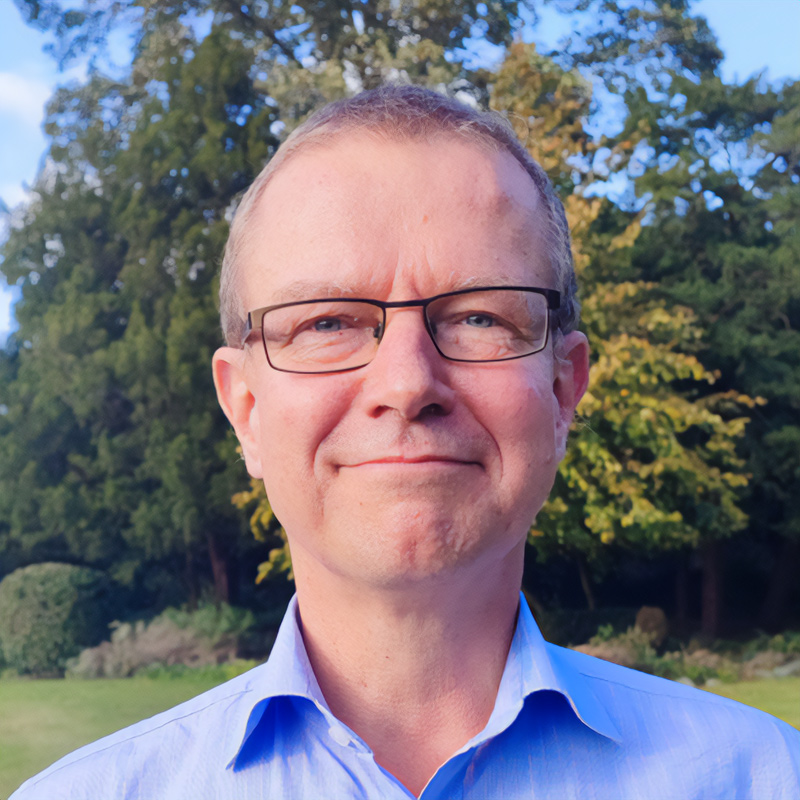
Prof Mats Nilsson
Professor of Biochemistry at Stockholm University and Associate Faculty at the Sanger Institute
I am convinced that the next wave of biological discovery and application is spatial biology. The goal of modern cell biology is to precisely understand (and then improve or enhance) how our organs behave in health and disease.
Incredible strides forward in single-cell research have been made to generate molecular profiles individual cells within a tissue. The genetic, genomic and transcriptomic data being generated at scale is helping to unlock fresh insights into the makeup and development of the tissues that make up the human body.
However, these insights are often devoid of the spatial information needed to understand the data in context of the microenvironment of a working tissue. Until we can explore and construct the spatial architecture of the individual cells working in concert within an organ, we cannot fully develop personalised treatments and approaches tailored to needs of each individual’s condition.
Developing the tools to explore tissues' spatial architecture
We have developed, and continue to refine, a range of methods to provide a topographical view of the cellular makeup and organisation of tissues. Our in-situ sequencing and profiling techniques provide a fine-grained understanding of the interactions between cells in complex structures such as tumours.
A key technology I and my team created are padlock probes that allow us to analyse gene expression patterns within intact tissues and cells in their native environments. This approach means that we can directly observe the transcriptomic profile of cells and observe their relationships with neighbouring cells within their overall geography in an organ.
Research with the Sanger Institute
I am collaborating with research teams across the Sanger Institute to:
- Explore the complex cellular makeup and organisation of tumours. In particular we seek to discover how the different clones of cells within a developing cancer influence each other and drive the rise of one set of fast-growing clones over another.
- Understand how well organoid models of cancer represent the behaviour and diversity of cells within a tumour. We will use this knowledge to discover and trial new diagnostic and therapeutic approaches.
- Further develop and refine in-situ sequencing to allow observation of cellular activity and interactions of layers of cells in all three axes of a tissue.
- Develop high-throughput spatial genomic techniques and computational methodologies to map the development of the human tissues at high-resolution and scale.
My research lab
To find out more about my research, please visit:
My website: Nilsson Lab.
My research group at Stockholm University: Mats Nilsson’s Research Group.
My profile page at Stockholm University: Mats Nilsson.
My timeline
Ongoing - Associate Faculty, Wellcome Sanger Institute, UK.
Ongoing - Director, Spatial and Single Cell Platform, Science for Life Laboratory
Scientific Director, Science for Life Laboratory
Site Director, Science for Life Laboratory in Stockholm.
Site Director, Science for Life Laboratory in Stockholm.
Scientific Director, Science for Life Laboratory.
Ongoing - Professor of Biochemistry (Molecular Diagnostics) at Science for Life Laboratory, Department of Biochemistry and Biophysics, Stockholm University.
Professor of Molecular Diagnostics, Department of Immunology, Genetics and Pathology, Uppsala University, Sweden.
VR Research Fellow (Rådsforskartjänst; Swedish Research Council).
Researcher (Göran Gustafsson research fellow) at the Department of Genetics and Pathology, Uppsala University, Sweden.
Research assistant (FoAss; MedFak) at the Department of Genetics and Pathology, Uppsala University, Sweden.
Associate Professor at Uppsala University, Molecular Medicine.
Research assistant (FoAss; Swedish Reaserch Council) at the Department of Genetics and Pathology, Uppsala University, Sweden.
Beijer research fellow, Genetics and Pathology, Uppsala University.
EMBO Fellow at Leiden University, Molecular Cell Biology, Molecular Cytometry.
PhD, Medical Genetics, Uppsala University. Title: Padlock probes: Circularizing oligonucleotides for localized detection of DNA sequence variants. Supervisor: Prof. Ulf Landegren.
Beijer Fellow at Uppsala University, Medical Genetics.
M.Sc., Biology, Uppsala University, Sweden.